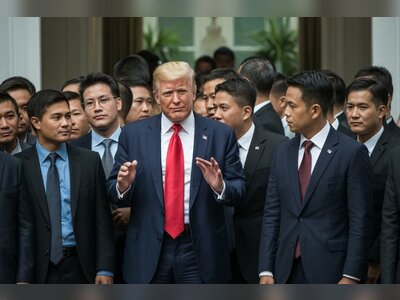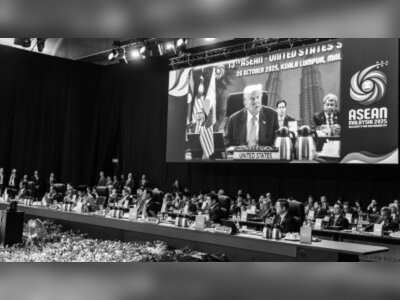Wealthy Nations' $300 Billion Climate Fund Ignites Discussion
Diverse Responses to Climate Funding at International Summit
At the recent international climate summit, wealthier nations introduced a substantial $300 billion climate financing package designed to aid developing countries.
The proposal has elicited various reactions, underlining the intricate intersection of global financial commitments and international politics.
Some view the offer as a progressive move toward combating climate change, highlighting the dedication from affluent countries, while others criticize it for being inadequate and laden with conditions that might reduce its effectiveness.
This initiative echoes past efforts like the Copenhagen Accord in 2009, where similar financial commitments encountered challenges in delivery and consistency, frequently leading to skepticism and trust issues among recipient nations.
The new deal notably involves private investments, introducing a concern about accountability.
Additionally, changing geopolitical dynamics, such as possible political shifts in the U.S., contribute to the uncertainty surrounding global climate commitments.
As nations like the EU, Canada, and Mexico independently pursue ambitious climate targets, there is speculation about a potential trend of unilateral climate leadership.
This prompts questions about whether such actions can effectively promote broader international cooperation, particularly when some countries remain heavily dependent on fossil fuels.
Equitably meeting financial commitments remains a crucial issue, with wealthier nations bearing historical responsibility for substantial contributions to climate change.
Without strong engagement from affluent countries, the world faces the risk of increased climate-induced migration, economic instability, and resource conflicts.
These complex dynamics highlight the urgent need for a balanced and effective global response to the climate crisis.
The proposal has elicited various reactions, underlining the intricate intersection of global financial commitments and international politics.
Some view the offer as a progressive move toward combating climate change, highlighting the dedication from affluent countries, while others criticize it for being inadequate and laden with conditions that might reduce its effectiveness.
This initiative echoes past efforts like the Copenhagen Accord in 2009, where similar financial commitments encountered challenges in delivery and consistency, frequently leading to skepticism and trust issues among recipient nations.
The new deal notably involves private investments, introducing a concern about accountability.
Additionally, changing geopolitical dynamics, such as possible political shifts in the U.S., contribute to the uncertainty surrounding global climate commitments.
As nations like the EU, Canada, and Mexico independently pursue ambitious climate targets, there is speculation about a potential trend of unilateral climate leadership.
This prompts questions about whether such actions can effectively promote broader international cooperation, particularly when some countries remain heavily dependent on fossil fuels.
Equitably meeting financial commitments remains a crucial issue, with wealthier nations bearing historical responsibility for substantial contributions to climate change.
Without strong engagement from affluent countries, the world faces the risk of increased climate-induced migration, economic instability, and resource conflicts.
These complex dynamics highlight the urgent need for a balanced and effective global response to the climate crisis.











